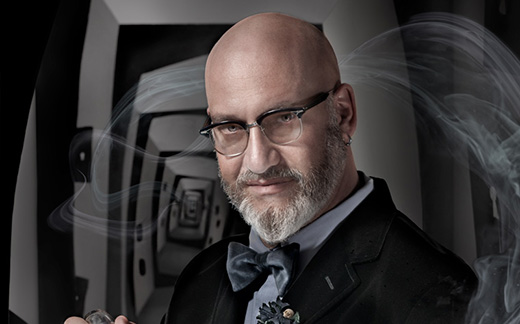
David Pescovitz
Boing Boing & IFTF
Space History
David Pescovitz is co-editor/partner in Boing Boing, the technology and culture Web site with more than 5 million monthly readers, and a research director at the nonprofit think tank Institute for the Future. Pescovitz was also the founding editor-at-large for MAKE:, the DIY technology magazine, and co-wrote the book Reality Check (HardWired, 1996), based on his long-running futurist column in Wired magazine. He has written for Scientific American, Popular Science, New York Times, Washington Post, Businessweek, and New Scientist, among many other publications. As a futurist, he frequently presents to senior leaders at Fortune 500 companies like Intel, Procter & Gamble, Tesco, and Samsung as well as large conferences about the future of technology, science, and culture. From 2000 to 2007 he was the first ever writer-in-residence at UC Berkeley’s College of Engineering. Pescovitz holds a Bachelor of Fine Arts in Electronic Media from the University of Cincinnati and a Master’s in Journalism from UC Berkeley.
Pescovitz has also contributed to the Los Angeles Times, IEEE Spectrum, Fast Company, MTV, Discovery Channel Online, and Encyclopaedia Britannica. His writings on technology and culture are featured in the books What Are You Optimistic About?: Today’s Leading Thinkers on Why Things Are Good and Getting Better, Dissident Futures, The Happy Mutant Handbook, and The ‘Zine Reader. Pescovitz is a member of the International Academy of Digital Arts & Science and has appeared on numerous television and radio programs and networks including CNN, NPR, and PBS NewsHour.
Photo credit: Ransom & Mitchell
My Sessions
History of the Future: What the 1970s Taught Us about Space Exploration
Main StageWhile the 1970s saw the last human to walk on the Moon, a sense of optimism abounded about our place in space and what the future might hold for us among the stars. From the launch of the twin Voyager probes to the Arecibo Message to space colony activism, young people (and old) were inspired […]